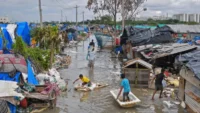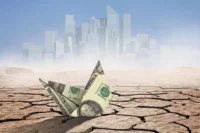
The Indian election issue that will impact the world (and no one is talking about)
It’s hard to truly comprehend how difficult and relentless a problem climate change is for a country as large as India. One way would be to rig a drone with a very large battery pack and fly it from one end to the other.
Start in the south in Bangalore, India’s Silicon Valley, in the fall of 2022. Fly very, very slowly northwards until you reach the Himalayas just before the national elections that started this week.
You would witness a country in constant convulsion.
Soon after take off, you’d see the swish houses and gleaming towers of Bangalore’s new tech and corporate elite submerged amid September 2022’s monsoon rains.… Seguir leyendo »


















